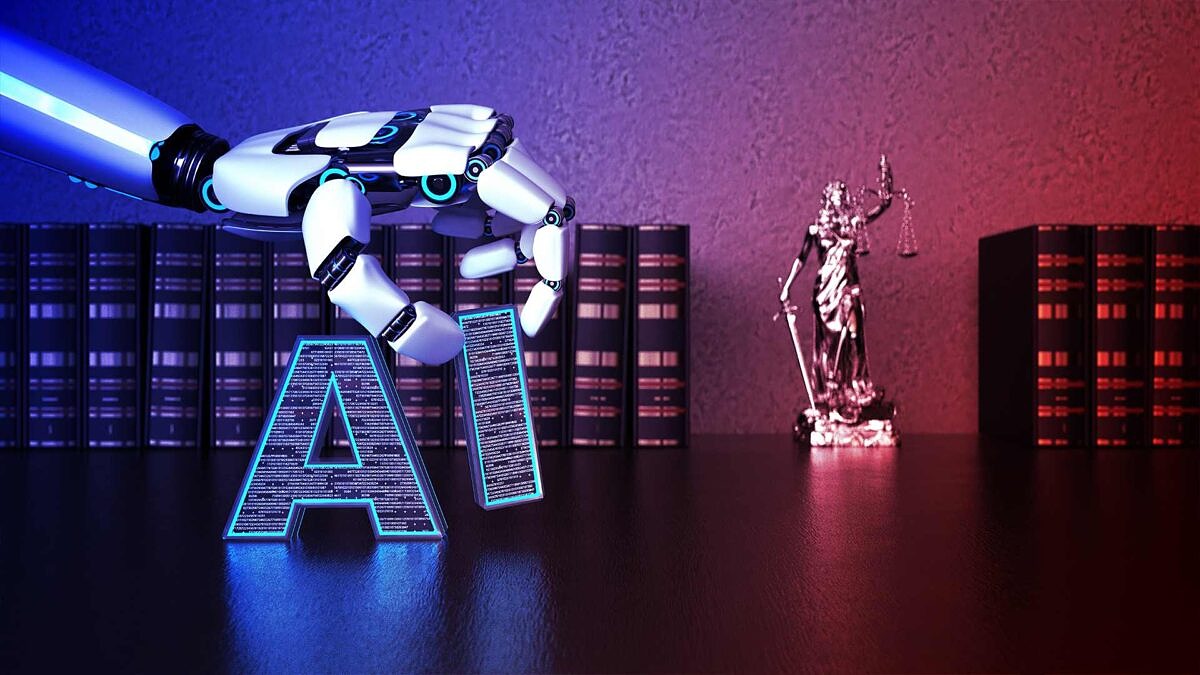Is the AI Act on the homestretch in Europe?
The AI Act will regulate the use of AI in the EU. We share some updates and an important statement from the BVDW.

An AI Act for Europe – what is the aim?
Accelerated by the overwhelming success of ChatGPT, artificial intelligence has become a widely and hotly discussed topic – from a legislative perspective as well. What boundaries need to be set for AI, and how should we regulate the technology to ensure AI is used safely? The European Commission, EU Council, and European Parliament have been exploring these and other questions for about two years now. The new AI Act is now set to be the first Europe-wide regulation on the use of artificial intelligence in EU member states. In fact, it is the first widescale AI Act in the world.
New rules for ChatGPT and other AI tools
The EU’s pending AI Act lays the foundation for regulating artificial intelligence in the EU. It specifically aims to introduce a set of rules for developing, deploying, and using AI-based systems in Europe. To that end, it intends to create a uniform framework and ensure transparency and legal certainty with regard to AI technology. The Committee on the Internal Market and Consumer Protection (IMCO) and the Committee on Civil Liberties, Justice and Home Affairs (LIBE) of the European Parliament are responsible for formulating the legislative text. In its original version, the 120-page proposed regulation addressed the following aspects, among others:
- Reasons and measures for regulating AI in Europe
- Classification of AI systems into risk classes
- Minimum requirements for AI systems
- Certification rules for particularly risky AI systems
- Provisions for the monitoring and supervision of AI by authorities in Europe
- Fines for infringements of the regulation
Facts on the AI Act: the current status and what’s coming soon
- Ursula von der Leyen, President of the European Commission, already announced the AI Act back in 2019.
- On April 21, 2021, the European Commission issued its draft proposal of the AI Act, entitled “Regulation of the European Parliament and of the Council Laying Down Harmonised Rules on Artificial Intelligence (Artificial Intelligence Act) and Amending Certain Union Legislative Acts.
- On December 6, 2022, the EU Council published its own draft of the regulation, which placed less emphasis on certain points.
- On May 11, 2023, the responsible committees of the European Parliament agreed on a proposed compromise.
- The proposed compromise now forms the basis of another Parliament vote expected to still take place in June.
- That will kickstart the official trialogue: as part of the legislative process, the EU’s three law-making bodies – the European Commission, the Council of the European Union, and the European Parliament – will together agree on the final regulation.
- And when will the AI Act enter into force? Experts don’t expect an agreement at the EU level until the end of 2023 or start of 2024. The final draft of the regulation will probably take effect two years later.
The AI Act proposed by the European Parliament actually caused quite a stir: more than 3,300 amendment requests were received in response to the first draft. The proposed compromise presented in May contains various amendments to the regulation – partly relating to technological aspects that were not present when the first draft was published. The amendments include a ban on AI for biometric surveillance, emotion recognition, and predictive policing. The responsible committees also introduced a ban on the indiscriminate scraping of biometric data from social media or CCTV footage to create facial recognition databases.
Praise and criticism of the political work
Dirk Freytag, President of the German Association for the Digital Economy (BVDW), sees the new agreement as an important milestone when it comes to the use of artificial intelligence, recently stating: “The more than 3,300 amendment requests highlight the sheer disruptive power of this technology and that legislation is being outpaced by reality, even during its drafting.” The digital expert thinks these factors could potentially be explosive in terms of the European Union’s plans to set global standards with the new AI Act. Freytag believes that technological developments certainly need to be legally regulated, but not in a fragmented way that dictates the direction. For that reason especially, he emphasizes the importance of defining an overarching framework that permits a sector-specific assessment and can be adjusted accordingly.
Might AI developers withdraw from Europe as a result?
The AI Act is causing a divide in the business world and the economy – at least for many developers of AI systems. For example, Sam Altman, the CEO of OpenAI and the brains behind ChatGPT, recently threatened to withdraw from Europe if the planned regulation were to be pushed through. In a later statement, he then said he thought the EU’s plans were a positive step, but he’d like more clarity.
Small and medium-sized innovators could be left behind
In a written statement addressed to the German Bundestag on the topic, Jonas Andrulis, founder and CEO of AI startup Aleph Alpha, raised the issue that the current regulatory efforts are hampering operational independence and making it difficult to derive value from AI technology on numerous levels. For example, he argues that the current regulatory focus is stifling the creativity of experts and leaders, because they lack the time and energy to develop new AI-based business models or coordinate with stakeholders. The AI expert, who was recently invited to the German Bundestag as a subject matter specialist, commented: “In this context, it’s not surprising that well-funded, non-European corporations are demanding greater regulation with the aim of expanding their business models using AI. After all, they have a whole host of lawyers at their disposal, who can ensure compliance with national requirements in terms of documentation, transparency, and risk assessment and who can defend these aspects in court if needed. Startups and SMEs don’t have that luxury.”
The AI Act: Is it a real positive, a compromise, or overregulation?
In our opinion, when new technologies fundamentally change our society (or are likely to do so), legal frameworks have to be established for them. However, only time will tell if and how the new AI Act will have an impact on a societal and economic level.
In any case, the statement issued by Jonas Andrulis once again highlights the great disparity in the opportunities available to large corporations and small-sized innovators. One thing’s for sure: it would be disastrous if AI providers withdrew from Europe.
The fact is that artificial intelligence is a groundbreaking technology with enormous innovative potential, but if young technology providers move their AI development expertise elsewhere, Europe could become less competitive. The discussion surrounding the EU’s AI Regulation will therefore remain highly interesting, appropriate, and important. For now though, the main thing is to keep an eye on what happens with the proposed compromise in June 2023. The data economy is also in motion with the EU Data Act.





